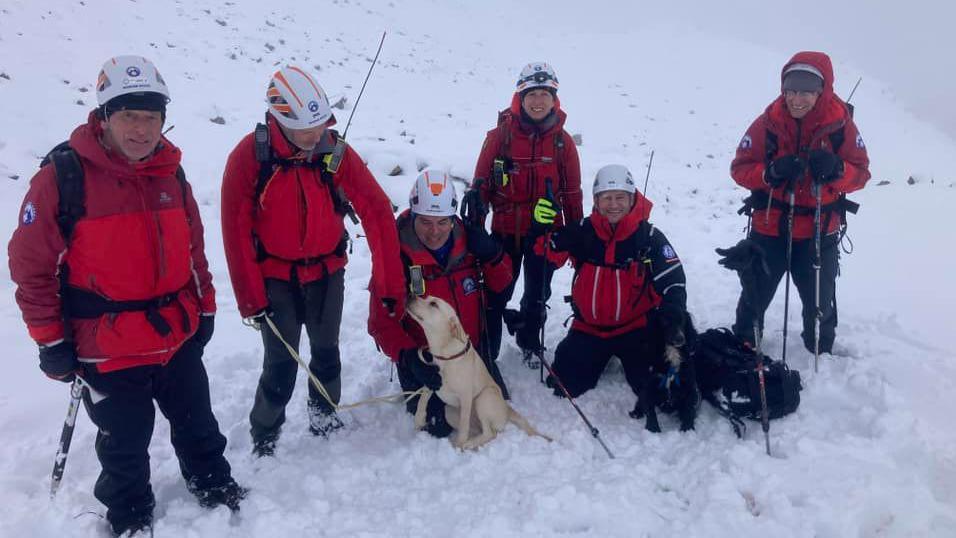Snowbound teen thought sleep 'a less painful death'
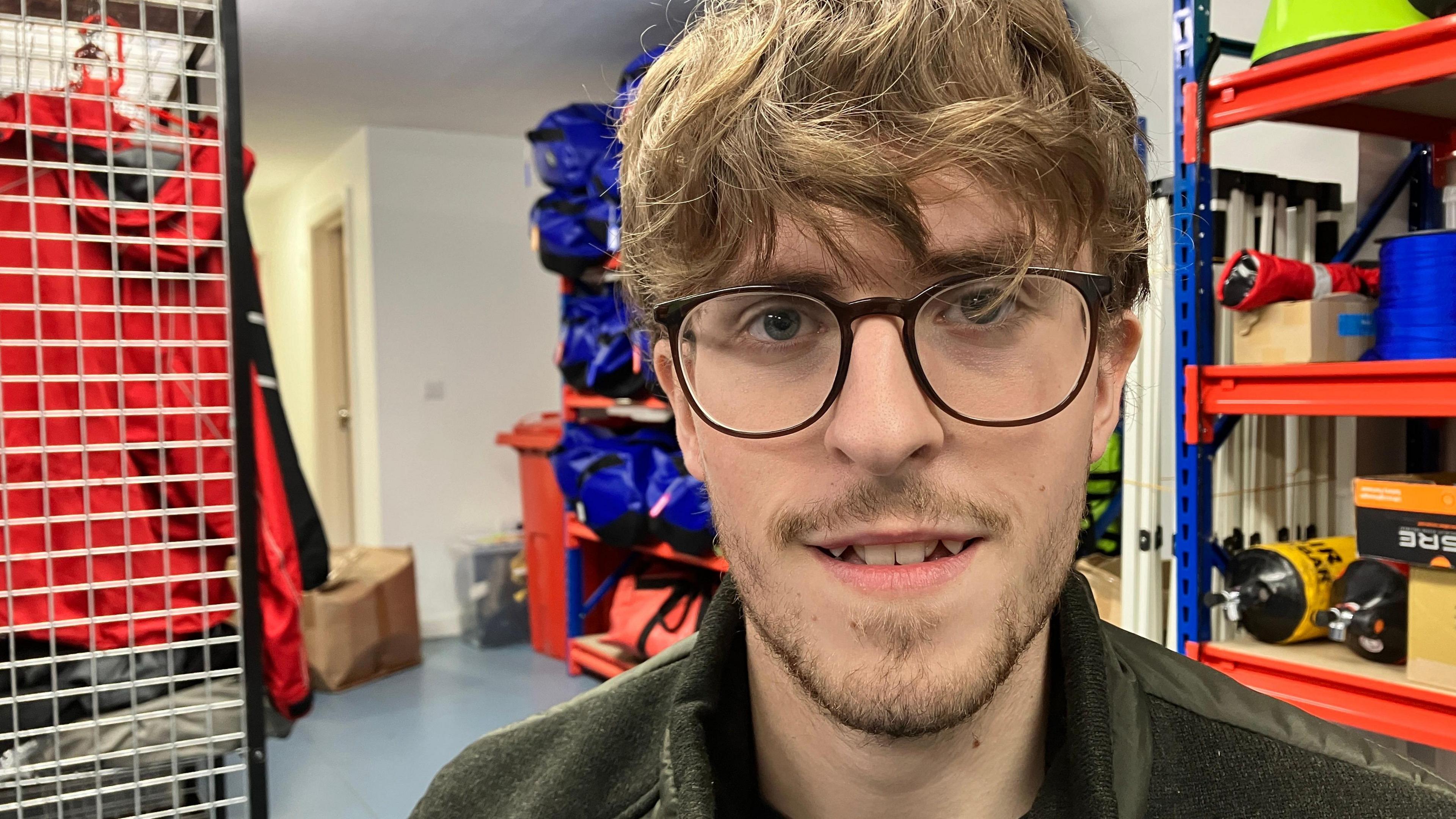
Stranded in a ravine in snow, Ben Longton said he was hallucinating and "on the brink of death"
- Published
A teenager stranded in snow on England's highest mountain considered going to sleep because he thought it would be "a less painful death."
Ben Longton, from Lancaster, set out with his dogs to get to the top of Scafell Pike on 1 March.
However, at the summit the 18-year-old lost the path down and made the near-fatal mistake of trying to descend via a treacherous ravine known as Piers Gill.
Thankfully, his father had reported him missing and he was winched to safety more than 19 hours later.
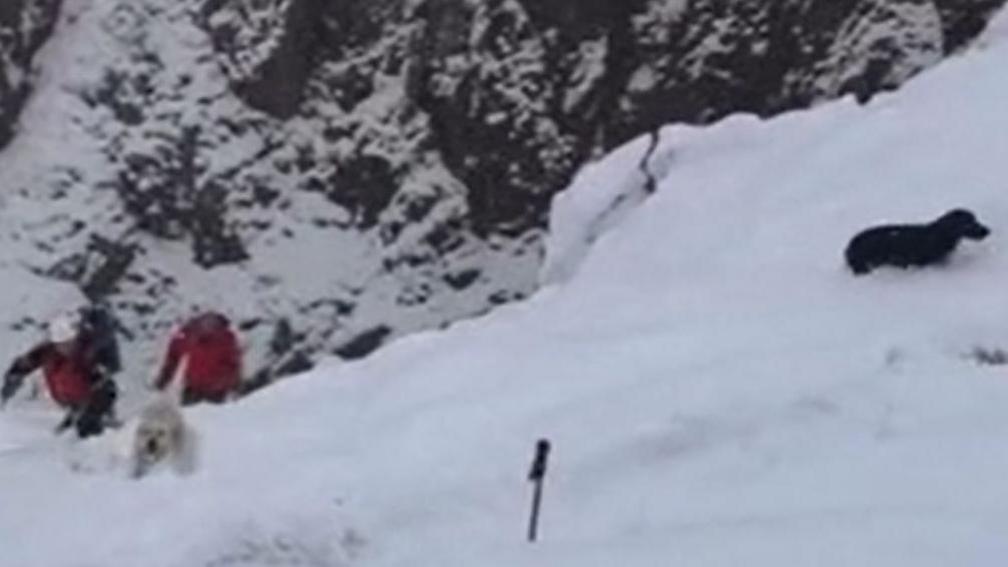
Mr Longton's two dogs were also led to safety
Volunteers from Wasdale, Keswick and Cockermouth mountain rescue teams scoured the slopes around Scafell Pike for Mr Longton.
But it was not until the following morning that volunteers, with the help of a Coastguard helicopter, were able to winch him out of the of the ravine and airlift him to hospital.
Mr Longton's two dogs were also rescued.
'Brink of death'
“I got to Piers Gill and the path you’re supposed to take isn’t obvious, and because the gill is downwards you think that is the way to go,” Mr Longton said.
“It was about 5pm when I fell and there was no phone signal. I was whistling and shouting until about 8 and I just thought, ‘I am going to die'.
"I thought that if I went to sleep it would be a less painful death than staying awake."
The teenager had tumbled down one of a series of waterfall pitches that run through the gill, breaking his femur.
“I was on the brink of death, I was hallucinating. My two dogs were watching over me and I didn't want to die in front of them," he recalled.
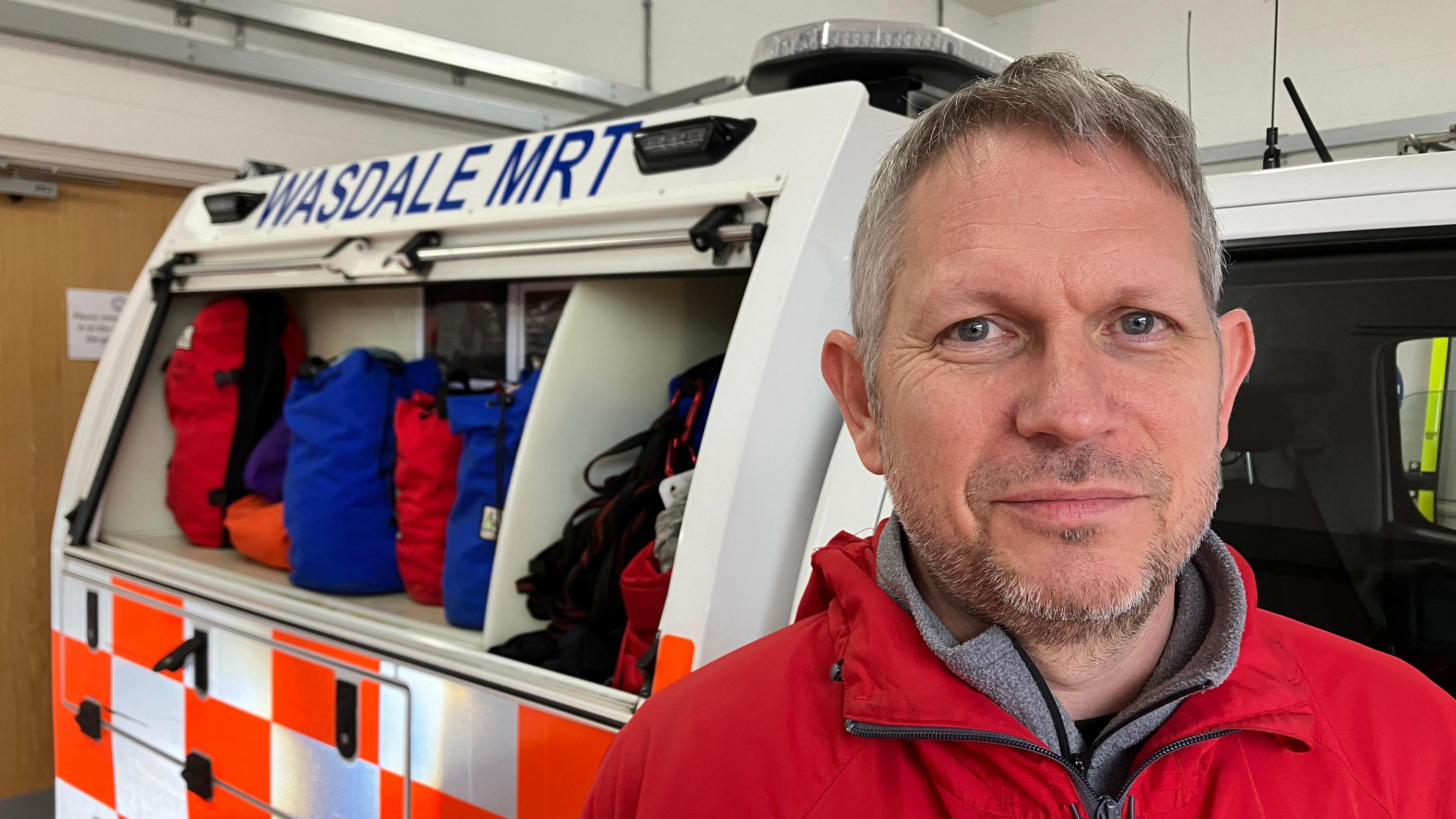
Wasdale Mountain Rescue team member Richard Moss said Mr Longton's rescue was the fourth of that evening
In the last eight years four people have died in Piers Gill and about 40 rescued, with many walkers suffering serious injuries.
The Wasdale team wants signs put up near the summit to show walkers the right path.
The team said this would encourage people to go back down to Keswick on one side, or to Wasdale on the other.
But the landowner, the National Trust, said it was against the move as it would set a precedent with too many signs intruding on the Lake District landscape.
It said it would rather encourage walkers to be better prepared.
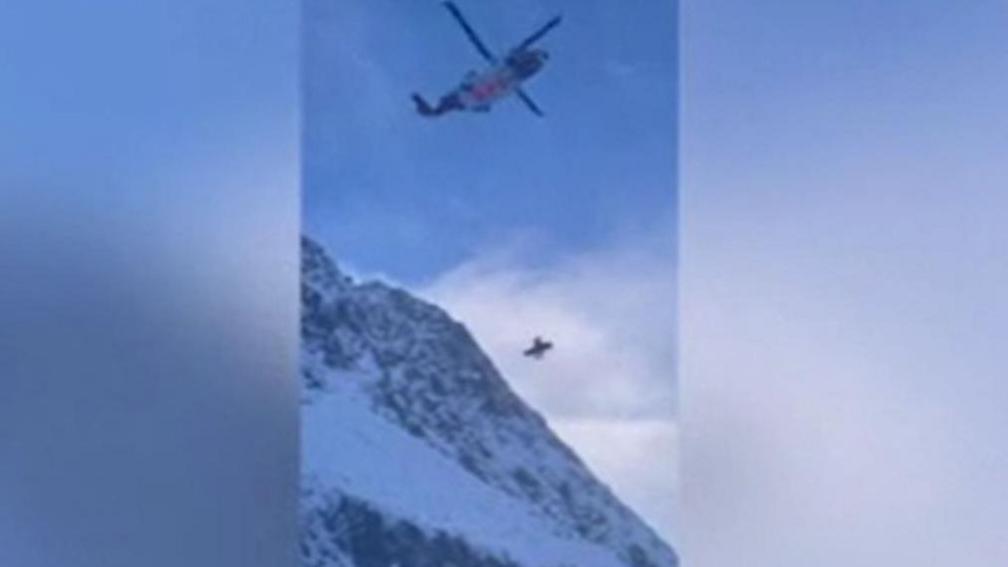
Mr Longton was airlifted out of Piers Gill
Last week, Mr Longton travelled to the Wasdale team headquarters to thank his rescuers.
“If it wasn’t for them, I would have been dead in that gill. I owe them my life," he said.
Wasdale team member Richard Moss said: “It was an extremely challenging rescue in difficult winter conditions and Ben’s rescue was the fourth rescue of that evening.
“It’s been quite emotional listening to Ben. It’s a fantastic outcome, it’s why we do what we do and it’s really lovely to see him.”
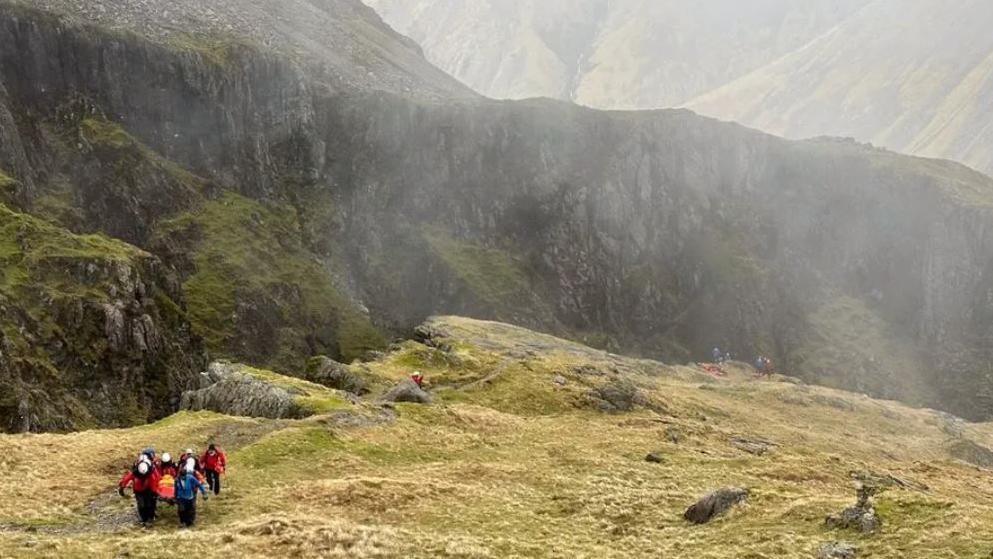
Mountain rescuers want better signage in the area
The National Trust said it was having "ongoing discussions" with rescue teams to look at ways of "improving visitor safety" on the descent from Scafell Pike.
"There are concerns that the addition of directional signage on England’s largest mountain would set a precedent elsewhere in the Lakes," the trust said in a statement.
"We will be looking at other interventions which can be made at this particular junction.
"While the trust will continue to keep visitor safety a priority in the landscape it looks after, fell walking comes with inherent risks and every walker should come fully prepared to take on a day in the fells."
The trust said guidance on how to prepare could be found on its website and maps and compasses were available from staff at Lake Head car park.
Follow BBC Cumbria on X (formerly Twitter), external, Facebook, external and Instagram, external. Send your story ideas to northeastandcumbria@bbc.co.uk.
More stories from BBC North East and Cumbria
- Published1 March 2024
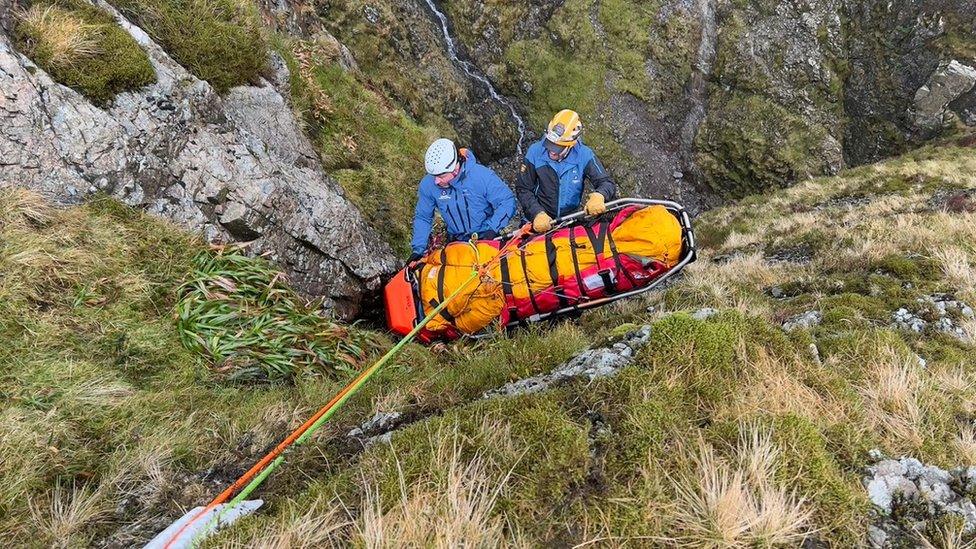
- Published4 March 2024
